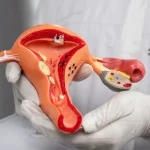
The fertility supplement industry is booming, with countless pills, powders, and teas promising to boost reproductive health. But do these products actually work? While some vitamins and minerals are backed by science, others lack strong evidence. Here’s what you need to know about supplements for fertility.
Common Fertility Supplements and Their Benefits
- Folic Acid : Essential for preventing birth defects and supporting early pregnancy.
- Coenzyme Q10 ( CoQ10 ) : May improve egg and sperm quality by reducing oxidative stress.
- Vitamin D : Linked to improved IVF outcomes and hormone regulation.
- Omega-3 Fatty Acids : Support hormone balance and embryo development.
- Zinc & Selenium : Important for sperm health and motility.
- Myo-Inositol : Beneficial for women with PCOS to regulate cycles and improve egg quality.
Supplements with Limited or Mixed Evidence
- Maca Root : Marketed for fertility, but evidence is limited.
- Royal Jelly : Popular in holistic circles, but scientific studies are inconclusive.
- Herbal Blends : Many “fertility teas” lack clinical research and may interact with medications.
Risks of Overusing Supplements
While supplements may seem harmless, taking excessive doses can be risky :
- High-dose Vitamin A can cause birth defects.
- Too much selenium may harm sperm.
- Unregulated herbal products may contain contaminants.
Always consult a physician before starting any supplement regimen.
Patient Story
Priya and Arjun tried multiple over-the-counter fertility supplements without results. After consulting with Surrogacy4All, they shifted to a physician-recommended plan including prenatal vitamins, CoQ10, and lifestyle changes. Within six months, they conceived naturally. Priya shared: “Getting medical guidance saved us time, money, and stress.”
FAQs
Q : Should I take prenatal vitamins before trying to conceive?
Ans : Yes, folic acid is essential for women before and during pregnancy.
Q : Do supplements replace fertility treatments?
Ans : No. Supplements may support fertility but cannot replace medical treatments like IUI or IVF.
Q : Can men benefit from fertility supplements?
Ans : Yes, antioxidants like CoQ10, zinc, and selenium can improve sperm health.
Conclusion
Fertility supplements can support reproductive health when used wisely, but they are not miracle cures. Physician-led guidance ensures safe and effective use, tailored to individual needs. At Surrogacy4All, we help patients integrate supplements with medical treatment for the best outcomes.
Learn more about fertility planning and embryo guarantee programs at click here | Contact info@surrogacy4all.com | Call 1-212-661-7177

Rashmi Gulati
Rashmi Gulati, MD, provides innovative, individualized health care that nurtures mind, body, and spirit. Since 2004 she has been the medical director at Patients Medical, where she delivers comprehensive personalized health care, treating each patient as a respected, unique individual. Through their integrative health care center in the heart of Manhattan, Dr. Gulati and her colleagues have become premier care providers serving patients locally and throughout the world.





